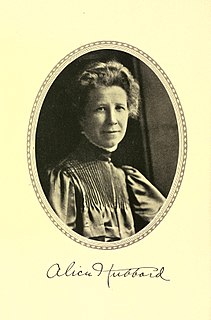A Quote by Kristin Cashore
Part a of scene from 'Bitterblue' between Madlen (Bitterblue's medicine woman) and Bitterblue: Madlen came to sit beside her [Bitterblue] on the bed. "Lady Queen," she said with her own particular brand of rough gentleness. "It is not the job of the child to protect her mother. It's the mother's job to protect the child. By allowing your mother to protect you, you gave her a gift. Do you understand me?
Related Quotes
My mother didn't feel sorry for herself, she was left with no child support, no alimony at a very young age, with a child to raise, a high school education and she just figured it out. She didn't complain, she didn't rely upon government, she relied upon her own skill set, her own self confidence, her own drive in moxie and her own duty to me and her and she relied upon her family and her faith.
Her mother was a Christian Scientist who didn't believe in calling doctors. So when my mother caught whooping cough as a baby, stopped breathing and turned blue, her mother revived her by spanking her on the bottom. She saw life itself as a gift and saw her own survival as precious and a matter of chance.
Every act of motherhood contains a dual intent, as the mother holds the child close and prepares it to move way from her, as she supports the child and stands it firmly on its own feet, and as she guards it against danger and sends it out across the yard, down by the stream, and across the traffic-crowded highway. Unless a mother can do both - gather her child close and turn her child out toward the world - she will fail in her purpose.
As Anna Freud remarked, the toddler who wanders off into some other aisle, feels lost, and screams anxiously for his mother neversays "I got lost," but accusingly says "You lost me!" It is a rare mother who agrees that she lost him! she expects her child to stay with her; in her experience it is the child who has lost track of the mother, while in the child's experience it is the mother who has lost track of him. Each view is entirely correct from the perspective of the individual who holds it .
The good enough mother, owing to her deep empathy with her infant, reflects in her face his feelings; this is why he sees himselfin her face as if in a mirror and finds himself as he sees himself in her. The not good enough mother fails to reflect the infant's feelings in her face because she is too preoccupied with her own concerns, such as her worries over whether she is doing right by her child, her anxiety that she might fail him.
A little girl came home from school with a drawing she'd made in class.She danced into the kitchen ,where her mother was preparing dinner. "Mom,guess what ?" she squealed waving the drawing . her mother never looked up. "what"? she said ,tending to the pots. "guess what?" the child repeated ,waving the drawings. "what?" the mother said , tending to the plates. "Mom, you're not listening" "sweetie,yes I am" "Mom" the child said "you're not listening with your EYES
There was no helping her tears. For they would leave Po behind… She cried into his shoulder like a child. Ashamed of herself, for it was only a parting, and Bitterblue had not wept like this even over a death. ‘Don’t be ashamed,' Po whispered. ‘Your sadness is dear to me. Don’t be frightened. I won’t die, Katsa. I won’t die, and we’ll meet again.
Earth fills her lap with pleasures of her own;
Yearnings she hath in her own natural kind,
And, even with something of a mother's mind,
And no unworthy aim,
The homely nurse doth all she can
To make her foster child, her inmate man,
Forget the glories he hath known
And that imperial palace whence he came.
Motherhood involves a special communion with the mystery of life, as it develops in the mother's womb. The mother is filled with wonder at this mystery of life, and 'understands' with unique intuition what is happening inside her. In the light of the 'beginning', the mother accepts and loves as a person the child she is carrying in her womb. This unique contact with the new human being developing within her gives rise to an attitude towards human beings - not only towards her own child, but every human being - which profoundly marks the woman's personality.


































